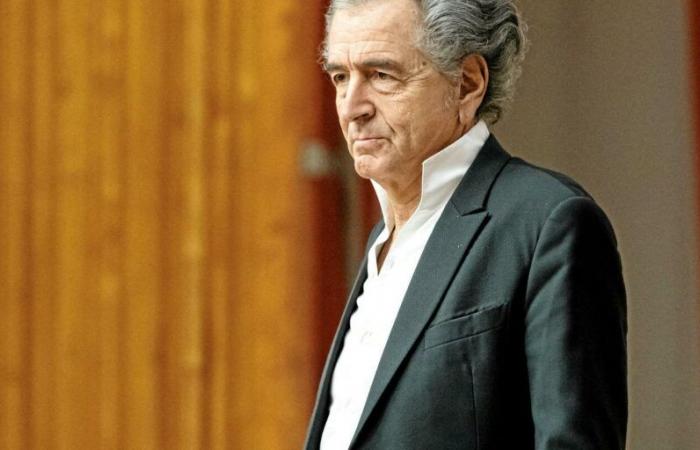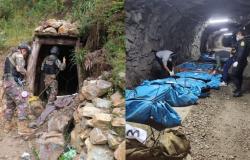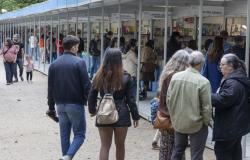IThere is no need to adhere to the opinions of Bernard-Henri Lévy to grasp the scope of the conviction that strikes him today. The affair which aims at him in Tunisia, where he was sentenced to thirty-three years in ability in absentia, greatly exceeds the case of a major figure in French intellectual life: it touches the very essence of what undermines our collective attachment to freedom of expression, justice and the responsibility of the State with regard to its citizens abroad.
Every Friday at 7:30 am
Receive our selection of articles drawn from our debates section, to understand the real challenges of the world of today and our society
Merci !
Your registration has been taken into account with the email address:
To discover all of our other newsletters, go here: my account
By registering, you accept the general conditions of use and our privacy policy.
This condemnation decided by Tunisian justice under conditions manifestly contrary to equity is added to that of Boualem Sansal in Algeria. These decisions, pronounced without transparency or respect for the rights of the defense, constitute alarm signals for all those who remain attached to the rule of law.
A delusional trial, an instrumentalized justice
This judgment, pronounced in the context of an unprecedented wave of repression, is part of a worrying institutional drift. Forty figures from the opposition, the associative world, the bar and journalism have been struck in Tunisia by sentences up to sixty-six years in prison, on the basis of accusations whose fancy dispute to absurdity: “attack on the food and ecological balance”, “economic sabotage for the benefit of Morocco”, “normalization with Israel”, “collusion with Islamic armed groups or foreign secret services ”.
Read too “Tunisia under the influence of Algeria” In the case of Bernard-Henri Lévy, no tangible element was made public, no evidence was produced, and the person concerned, in The pointhaving never been informed, summoned, or even heard by Tunisian justice. His presence in this file seems to respond more to a logic of stigma and scapegoat than any concern for judicial truth.
This trial is similar to a legal play where justice, far from being independent, is instrumentalized for political ends. The most basic procedural guarantees have been flouted: absence of convocation, unverifiable accusations, exclusion of independent observers, use of videoconferencing for prisoners, refusal of visits to families and lawyers in other similar cases. Human Rights Watch, after examining the file, stresses that these accusations are not based on any credible evidence and is part of a broader intimidation and muffled -up strategy.
Symbol of authoritarian drift
The condemnation of Bernard-Henri Lévy is not an isolated act. It is part of a context of generalized repression where justice becomes the instrument of authoritarian power, prompts to stifle any dispute, to criminalize critical thinking and to silence intellectuals who disturb.
This deleterious climate does not spare other French figures either, like Boualem Sansal, sentenced to five years in prison in Algeria for comments made in a French review. These cases, which multiply, constitute alarm signals for all those who remain attached to the rule of law and to the protection of our fellow citizens abroad.
Read too France-Algeria: The Cold WarIt must be remembered: defending Bernard-Henri Lévy is not defending an opinion, neither a notoriety, nor even a personality. It is to defend the very possibility of criticism, debate, free thought. If France accepts that one of its intellectuals is sentenced to thirty-three years in prison on the basis of delusional accusations, without the slightest respect for the rights of the defense, then it is the whole of our intellectual and democratic life that is threatened. Today, they are them, tomorrow it could be any other writer, journalist, academic or committed citizen.
Legal masquerade
To tolerate that his intellectuals are thus delivered to the arbitrariness is to give up an essential part of what makes his singularity and his strength. It is at the credibility of our country, its honor, and its loyalty to its own values. French diplomacy must get out of the reserve and make a clear, firm and unequivocal protest heard. It is not only a question of the fate of two men, but the ability of France to defend its principles and its citizens, wherever they are.
Bernard-Henri Lévy, whether we appreciate him or not, embodies today, in spite of himself, the fight for freedom against arbitrariness, for justice against political revenge. The defense of his rights, like that of Boualem Sansal, stands out as a republican duty.
Minister of Foreign Affairs, we are waiting for a clear word, an unreserved commitment, to denounce this blatant injustice.
To refuse to commit is to accept that intimidation and repression prevail over reason and equity. It is up to France to recall, with force and consistency, that the defense of its unjustly condemned intellectuals is not an option, but a fundamental requirement of all democracy worthy of the name.
The Minister of Foreign Affairs, France publicly worried about the wave of convictions pronounced in Tunisia, stressing the absence of guarantees of a fair trial and the severity of the sentences inflicted on members of the opposition, of civil society, and to some of our compatriots. But to date, no official word has been specifically carried out on the case of Bernard-Henri Lévy.
How long will it still take for your ministry to publicly take the measure of this drift, and affirms with the firmness required that France cannot accept that one of its intellectuals is thus delivered to the arbitrariness?
To discover
The kangaroo of the day
Answer
We expect from you a clear word, an unreserved commitment, to denounce this blatant injustice and recall that the defense of our intellectuals, unjustly condemned, remains a republican imperative from which our country cannot escape.
* Marc Knobbel Is a historian, associate researcher at the Jonathas Institute in Brussels.






